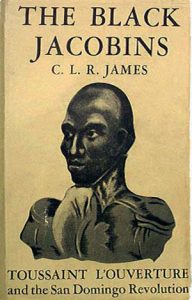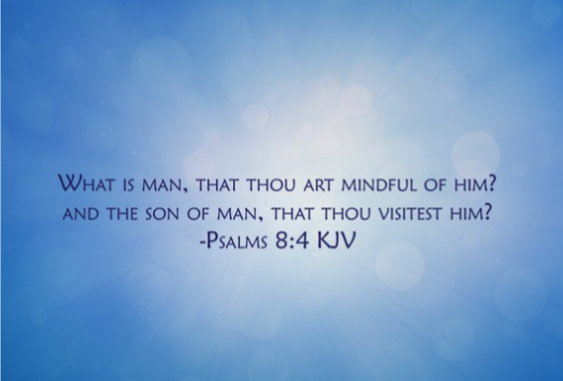(ThyBlackMan.com) Several years ago black actor and activist Danny Glover, presented Hollywood with a movie script about the Haitian General Toussaint Louverture, leader of the Black Jacobins and the Haitian Revolution that stunned the world but—Hollywood refused to back the film. The reason given: There were no white heroes! Hollywood’s modus operandi have always been to sanitize slave history presenting black people ONLY as quiet, submissive pawns, entirely unassuming and obedient, yielding obedience to their white rulers and having the utmost veneration and respect for their white slave-masters, and none for themselves.
General Toussaint and the Black Jacobins noble and heroic deeds in overcoming slavery is not an image Hollywood wants presented of black people—it simply isn’t in keeping with the negative image of that of a nigger. This practice of deception has been a constant throughout the history of America reflecting the passions and ideas of the dominant class. The best way to keep masses of people ignorant is to strip them of any positive attributes about their history, and to a lesser degree well supplied and high off drugs.
The Haitian Revolution 1791–1804, was one of those rare transformative social, political, and economic detonations made all the more remarkable in that it took place in not only the richest and most productive colony of the French Empire but of any empire. A place where slaves created a nation becoming the world’s first [economic independence] free Black republic—something the ruling class never wants to talk about; consistent with concealing any and all remarkable feats achieved by Black Civilizations from Ti mbuktu, Zimbabwe, Songhay, Kush, Mali, Ancient Ghana to Ancient Egypt.
mbuktu, Zimbabwe, Songhay, Kush, Mali, Ancient Ghana to Ancient Egypt.
General Toussaint’s defeat of the super power armies of Spain, Great Britain and France’s Napoleon, was so profound, so important, so stunning—it marked the onset of a general crisis of the entire slave system—unleashing a chain of events that could only eventuate in this system’s collapse, significance of which were very troubling and disturbing to the slave-holding republic of the United States.
The Haitian Revolution insurrection was a fiery cataclysm of an enormous scale and it marked “the first great shock between the ideals of white supremacy and race equality,” a confrontation that compelled a retreat of the racialized slavery that had given rise to the slave-holding republic in the first instance.
Frederick Douglass speaking in Chicago in 1893 saluted the Haitian Revolution as “one of the most wonderful events in the history of this eventful century and I may also say in the history of mankind.” He acknowledged that they “met deception with deception, arms with arms, harassing warfare with harassing warfare, fire with fire, blood with blood, and they would never have gained their freedom and independence if they had not thus matched the French at all points.” He later on prior to passing away, commented “it was the Haitian Revolution that was the original pioneer emancipator of the 19th century, whose bold intervention plunged the slave system into a death spiral from which it could not emerge, posing a mortal threat to all slave-holders throughout the world.”
The Haitian Revolution indeed sent a sensation of nervousness coursing through the American slave-holding republic, reminding those who may have forgotten that slavery was an inherently unstable, conflict-ridden system that inevitably gave rise to bloody rebellion. Lesson: Slavery breeds “insurrections” and, thus, was unsustainable.
Haiti’s constitution of 1804 decreed that slavery would never again exist in Saint Dominque, as Haiti was then known, and it was the first in history to prohibit discrimination based on skin color a milestone that U.S. law would not guarantee for another—150 years.
The Black Jacobins were a beacon of inspiration for U.S. enslaved Africans, reinforcing the idea that they were far from alone and, similarly important, they could prevail. It should be pointed out that when Abraham Lincoln signed the Emancipation of Proclamation it wasn’t done out of the goodness of his heart, but out of concerns for the safety and welfare of white people, as isolated incidences of enslaved Africans revolting were increasing exponentially. Resolute racists thought that but for external forces like Haiti, slavery in the U.S. might have continued.
Which begs the question what was it about Haiti’s enslaved Africans—the Black Jacobins—that made them the antithesis of America’s enslaved Africans? The Haitians though physically enslaved weren’t [mentally enslaved] unlike their American counterparts who were. The Black Jacobins’ “African cultural continuity” was never extinguished. The importance of this can’t be overly emphasized for perversely American slave-masters had stripped its enslaved Africans of their cultural identity and heritage.
Fearful that Toussaint’s Black Jacobins might gain free immersion and communion with their black brethren in the Southern states, threatening the security of the United States, an exasperated Thomas Jefferson once referred to the valor of Black Jacobins as the “cannibals of the terrible republic.” Because of Haitians energetically repelling the white man from their territory and forbidding him to enter it they were excoriated by American slave-holders as creatures possessing, “intellect of the lowest order.”
Haiti set an example for oppressed folks all over the world who faced colonialism, and for that, powers that be of the world made Haiti pay dearly. The world’s response was to isolate, tyrannize and make Haiti pay for rising up against slavery and white supremacy.
Year 1825 France threatened to re-invade Haiti, to re-occupy and re-enslave the people basically said you either pay us an extortion fee of what would now be equivalent to about 22 billion dollars in today’s money or we are going to take you back. Haiti had been weakened to the point it really didn’t want to go through another war, it had been a 13 year war and they had lost a large percentage of their population during the war so they decided instead to pay the fee, being forced to pay the money in the form of a reparation as punishment for the slave owners’ losses—property, lives, etc.
Beginning in 1825, in order to pay France, Haiti had to shut down all the public schools which explains its high illiteracy rate of present day; had to forego infrastructure, irrigation ditches, health care system, etc. It took Haiti over a century to finally pay off the extortion money to France.
USA was ran by slave owners such as the likes of George Washington, and Thomas Jefferson who were committed to the doctrine of white supremacy and slavery; Haiti’s revolution threatened it all. America, where Africans were at the bottom rung of society, ironically found themselves now engaging with Black Jacobins and from a subversive vantage point of relative equality. As a result USA was very hostile towards Haiti. It took several decades before America finally recognized them as a sovereignty, which was sometime during the Civil War, albeit the hostility remained
Serious attempts were made by America to try and annex the Dominican Republic, Haiti along with other Caribbean islands. Had they been successful the plan was to emigrate black people en masse to Haiti and reconstitute slavery. Haiti, not trusting America suspected as much, furiously fought against annexation and should be seen as a culminating vehemence toward a lengthy and hostile U.S. policy toward Black Jacobinism, a hostility that to this very day has never been extinguished.
President Grant, strong supporter and advocate for annexation was eager to see the mass deportation of the newly freed to the Caribbean. Senator Charles Sumner, Abolitionist Wendell Phillips fought against annexation—as a result of their efforts—the U.S. Senate in 1870 failed to ratify the pact, contemporaneously saving Black/African Americans from being shipped en masse to the Dominican Republic.
Several years later Grant was still harboring ill-feelings about the failed annexation, speaking in 1878 in harsh terms about the abolitionist Wendell Phillips…who had spoken with contempt…of the “treachery to the black race” involved in this pro-annexation effort.
Haitian’s have it written in their 1804 constitution that only Haitian nationals could own property but when USA invaded them and militarily occupied Haiti from 1914-1935 the constitution was done away with, undermining the sovereignty of the Haitian Republic and the development of democracy thus opening the door to the world to suck the life out of Haiti. The will of the Haitian people was not expressed because Haitian political sovereignty was constrained by the American military.
The military force was used to impose a democracy by undemocratic means. Elections under the Occupation were rigged; a treaty was passed by force; martial law was declared; military tribunals were held; the press was censored; the Haitian Senate was dissolved; the constitution was changed by an unconstitutional plebiscite, and opposition was violently repressed. It appears as though everywhere the oppressor goes they bring NO light, but will and do [put out] the light.
Finally—for the first time in its nation history—in 1990, Haiti had a chance to elect its first president in a free democratic election. Jean-Bertrand Aristide was the man. However, USA, had handpicked someone else to win but the Haitian people knew who they wanted and it was Aristide. Fall of 1991 Bush Sr.’s administration overthrew Aristide; 2000 he ran again and won. Only to be subjected to another military coup once again being overthrown. Clinton administration went after him creating an economic blockade. Bush Jr. continued the destabilization. Since the election of President Jean-Bertrand Aristide in 2000, the United States has moved to sabotage Haiti’s fledgling democracy through an economic aid embargo, massive funding of elite opposition groups, support for paramilitary coup attempts, and a propaganda offensive against the Aristide government.
At one time Haiti was the wealthiest colony in the entire world but has since been systemically drained of all its natural resources starting with its very humanity. The unconscionable embargo made the situation even worse.
Black/African-Americans today have not fully digested the implications of the failed annexation of the island. Indeed, the assumption of U.S. citizenship has come at a steep price: namely, presumed—or coaxed—support for imperial ventures that are harmful to longtime allies and are, ultimately, detrimental to the true interest of Black/African-Americans themselves. Nevertheless, the ultimate legacy of Haiti is the penetrating impression left by Black Jacobinism, which inspired abolition and helped to generate a spirit of militancy among Black/African-Americans that has yet to be extinguished.
Staff Writer; H. Lewis Smith
This talented brother is the founder and president of UVCC, the United Voices for a Common Cause, Inc., http://www.theunitedvoices.com author of Bury that Sucka: A Scandalous Love Affair with the N-Word, and the recently released book Undressing the N-word: Revealing the Naked Truth, Lies, Deceit and Mind Games https://www.createspace.com/4655015
Also follow Mr. Smith on Twitter: http://www.twitter.com/thescoop1.

















Leave a Reply